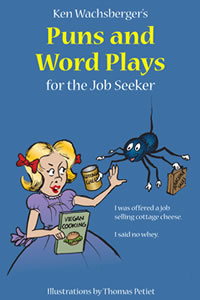I’m asked by writers why they would want to hold onto a copyright. A better question would be, why would they want to give it away? How important is copyright protection to society’s well-being and the continuation of our culture? It is guarded by the U.S. Constitution.
Article I, Section 8, Clause 8: “the Congress shall have power to promote the progress of science and useful arts, by securing for limited times to authors and inventors the exclusive right to their respective writings and discoveries.”
The Copyright Pie
In the early years of this millennium, I often lectured academics and writers about book contracts and copyright. The work was a feature of my job as National Writers Union contract adviser specializing in academic contracts. I used to picture copyright as a pie. (I thank former NWU grievance officer Amy Rose for that analogy.)
You can sell the whole pie for a fixed price. Or you can sell or lease different pieces for different forms of publication and use. These include First North American Serial, performance, translation, electronic, paperback, foreign, reprint, technology not yet invented.
These rights themselves may be subdivided. For instance, contractual terms used to designate performance rights include audio (sound recordings), video, motion picture, multimedia version, television and radio, cinema, cassette, filmstrip, disk, wire recording, stage, movie, dramatic, public reading, adaptation, visualization, and recording.
Affixing Your Idea
When does copyright to the expression of your original idea belong to you? The moment you affix it in a tangible medium of expression. Media of expression may include writing, a sculpture, or a musical notation. The idea itself cannot be copyrighted, only the way it is expressed. Likewise, a fact can’t be copyrighted but the way it is expressed can be copyrighted.
Generally, a title can’t be copyrighted unless it is sufficiently familiar to the public to have “secondary meaning.” You wouldn’t want to call your book Gone with the Wind, for instance.
Once you have creatively affixed your idea or fact in a tangible medium of expression — you’ve written your poem on paper, for instance — it is copyright-protected. In other words, copyright is yours from the moment you begin writing your book.
The copyright remains yours until you physically sign your name to a document that transfers it to another owner. That means you can’t give away your copyright by saying, “Here, you can have it.” You have to sign it over.
But Why Give Away Your Copyright?
But there’s no reason to give it away. Don’t let publishers intimidate you or tell you that it would be more convenient if you let them have your copyright. Whatever they want to do with your book — distribute it around the world, translate it, turn it into a movie, make it an ebook, reprint portions of it — they can do while you still own the copyright.
They probably won’t even put up a fight. The first time I said I wanted to keep my copyright, my publisher said he had never been asked that before and would have to consult with his lawyer. I don’t know if he was trying to scare me or bluff me out but a week later he got back to me and said I could keep it. I wasn’t planning to settle for less.
Don’t be scared to ask. Publishers are working on deadline. They have catalogs to fill. It’s easier for them to grant some of your requests than it is to chase you away and have to find another. Think “bird in the hand.” They’ve already invested a lot of time and money into bringing you this far. Do they really want to start all over?
It’s called negotiating and every editor and publisher will do it for a good writer and to meet a tight deadline.
“In the Name of the Publisher”
So what do you do if the boilerplate contract says the copyright will be taken out “in the name of the publisher”? You cross out “the publisher,” insert your name, and initial the change.
Don’t get me wrong: Publishers won’t accept every change you make. That’s what negotiating is. But if you ask for everything you want, you’ll get some of it. If you ask for nothing, you’ll get all of it.
And if they insist on taking your copyright from you, start looking for another publisher.
* * *
This piece was adapted from Ken Wachsberger’s You’ve Got the Time: How to Write and Publish That Book in You. Ken’s other books may be found here and here. For book coaching and editing help, or to invite Ken to speak at your meeting, email Ken at [email protected].
Do your members need to understand book contracts? Contact Ken at [email protected].
Schedule your complimentary 30-minute coaching and editing session now.







